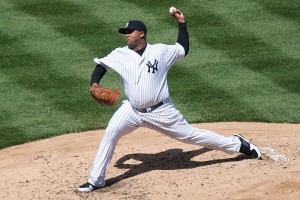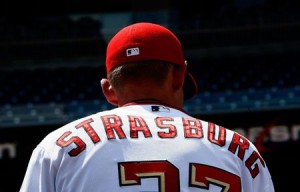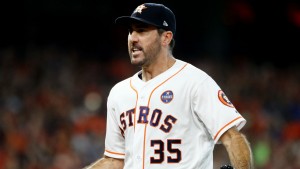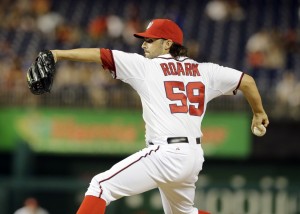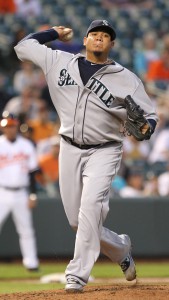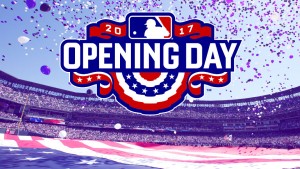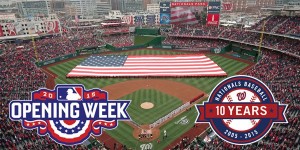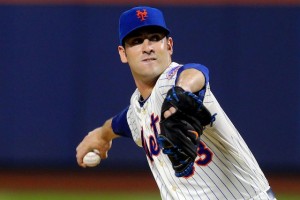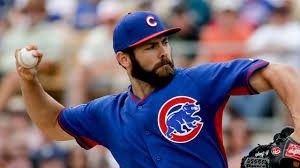Earlier this season, when Stephen Strasburg hit 1,500 career strikeouts I posted a thought piece speculating on his Hall of Fame chances. That conversation kind of got derailed in a projection discussion versus a theoretical discussion on what we could reasonable expect from Strasburg going forward. Which is fine; its awfully hard to project a guy already on his second UCL for the next decade.
So, lets talk about four guys who have now hit much more impressive career mile-stones and talk about them individually.
Before we do, you may wonder why I care or why I think this is worth discussing. And here it is: Starting Pitching usage in our sport has drastically changed in the last decade. The odds of ever seeing a 300-win pitcher again seem remote, given 5-man rotations, openers, and the general downgrading of the “Win” statistic. Meanwhile, Strikeouts are skyrocketing, as teams no longer care if a guy strikes out 180 times as long as he hits 45 bombs. As we speak, Seven of the top 10 pitchers in the history of the sport in terms of K/9 are active starters as we speak.
So my overarching question basically is this: do we need to drastically change the way we evaluate the careers of (especially) starting pitchers given where the game has gone as of late?
And pitchers like Strasburg, Hamels, Sabathia, and Greinke are pretty good test cases. Here’s why.
Historically, 3,000 career strikeouts was nearly a lock to get a guy to Cooperstown. As we speak, there’d just 17 guys in the history of the sport who have hit that threshold. Of those 17 starters, 14 are in the hall, 1 is still active (Sabathia), and two are named Roger Clemens and Curt Schilling (who have externalities unrelated to their performance on the field that are holding them out of the hall). But going forward, it really seems like we’re going to start seeing a glut of guys hit that 3,000 threshold, and I wonder if we’re going to have to re-think what it means to be a Hall of Fame starter.
With respect to Wins … we’re also seeing a drastic change in expectations for career totals. Sabathia just hit 250 wins, which now seems like the “new 300” given pitcher usage. Heck, it now seems like even hitting 200 career wins may be a pretty significant accomplishment, which is amazing considering the lofty career totals achieved by Clemens, Greg Maddux and Randy Johnson just a half a generation ago.
We’re kind of already seeing the effects of this change in evaluation; thanks to evolving usage starting in the 1980s and then the PED effects lengthening careers and thus inflating numbers in the 90s, there’s a severe lack of starting pitchers from the 1980s enshrined in the hall, guys with the kind of career numbers that, if they were pitching today, we’d be having a different conversation. I wrote about this back in 2013 and did a ton of research at the time, and there’s a slew of starters from the 1980s who really deserved a better consideration than they received from the voters at the time.
Are we going to see something similar with pitchers from today?
Anyway, lets talk about these three guys who hit career milestones within the past few weeks:
- CC Sabathia: this year has hit both 3,000 career Ks and just got his 250th win. He has a Cy Young, had a 5-year stretch where he was a top-5 vote-getter, but is slightly below the average HoFamer in terms of JAWS and the Hall metrics available at his baseball-reference.com page. He’s already announced that he’s retiring after 2019. Is he a Hall of Famer?
- Zack Greinke: just hit 2,500 career Ks, is just 5 wins away from 200 career wins. He’s signed through 2021, is in his age 35 season and has shown pretty good durability throughout his career (I mention this to try to project how long he can stay effective). He’s having an excellent 2019 despite pitching in Arizona’s hitter’s park and should be an All Star. He’s averaged 16 wins a season after his age 30 season, meaning he could possibly be in position to challenge 250 career wins himself. Just one Cy Young award (in an amazing Kansas City season), and came in 2nd in a year when he had a 1.66 ERA in a full season in 2015. Statistically, his JAWs looks a lot better than Sabathia’s, and he seems to have several more years to tack on WAR and put himself in the upper echelon of SPs historically. Is he a Hall of Famer?
- Cole Hamels: just hit 2,500 career Ks himself. But he’s no where near the 200 win totals that Sabathia and Greinke have already hit (he’s 162-116 as of this writing) while also being in his age 35 season. He’s been almost exactly averaging 9 K/9 for the past few years. He’s in his contract year this year, and he’s been amazingly durable (missing just a few weeks in 2017 in the last decade). I think he’s a shoe-in to get a 3 year contract, which should give him a shot at at least 600 more innings and probably 600 more strikeouts on top of what ever he ends up with this year. He’s never really come close to a Cy Young, and his JAWS/black ink figures are wanting. Is he a Hall of Famer?
- Felix Hernandez also just hit 2,500 career Ks in his last start. His 5-year peak from 2009-2014 included one Cy Young, two 2nd place finishes and a perfect game in 2012. Through his age 30 season he sat at 154 wins, 2264 Ks and had people thinking perhaps he had a shot at 300 wins and 4,000 Ks. But like a light switch, he fell apart upon hitting 31, to the point now at age 33 that the team is considering removing him from the rotation. Furthermore, he’s falling apart at the end of a long, expensive contract and (as we’ve now seen in the FA market for starters > 30) he may be in trouble of even getting a guaranteed contract for 2020 and beyond. As of today, he’s got just 15 combined wins in the last three seasons (including this one) and seems influx going forward. His peak helps him from a JAWs/WAR perspective, but he still sits well behind what a typical Hall of famer sits. Right now, is he projecting as a Hall of Famer?
There’s other interesting use cases out there in terms of active pitchers. I don’t think there’s any doubt at this point that the likes of Clayton Kershaw (3 Cy Youngs already), Justin Verlander (who probably hits 3,000 Ks this season) or Max Scherzer (also 3 career Cy Youngs already) are headed for enshrinement. But what do you do with someone like Felix Hernandez, who was dominant early and has fallen off a cliff? What about John Lester? At age 35 (same as Grienke and Hamels) he’s 4th actively in Wins and led the league in them last year with 18. What if Lester hits 200 wins and gets close to 3,000 Ks.
So, i’ve thrown these names out there. If I was a voter, what would I say?
- Sabathia: yes
- Greinke: projecting to Yes
- Hamels; projecting to No, even if he hits 3,000 strikeouts career
- Hernandez: projecting to No
- Lester: projecting to No
What do you guys think? Is it time to re-think career milestones for Starters?
